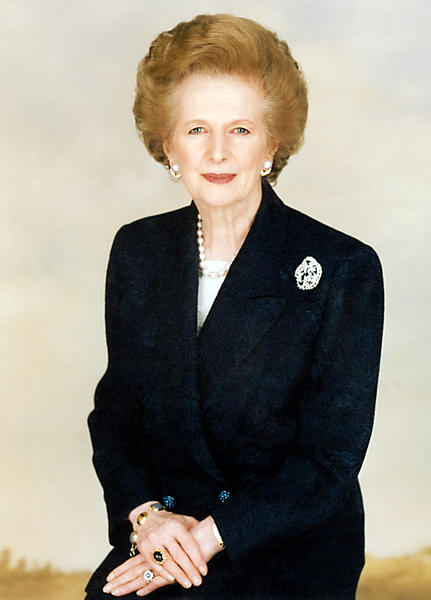The Richard Branson Way: Lessons in Leadership, Innovation, and Social Responsibility

The Visionary Leadership of Richard Branson
Leadership is a critical element of success in any industry or field. While there are countless theories and models of leadership, one of the best ways to learn about leadership is to study successful leaders and their stories. One such leader is Richard Branson, a British entrepreneur and founder of the Virgin Group, which comprises over 400 companies worldwide. Branson’s leadership style and approach have been studied and admired by many, making him a valuable case study for aspiring leaders.
Branson’s success story began with his early vision for Virgin Records. He started the record label in 1972, after dropping out of school at the age of 16. Branson had a passion for music and believed that he could make a difference in the industry. He wanted to create a company that would challenge the status quo and offer a different kind of experience for music fans. His vision for Virgin Records was to create a company that was innovative, customer-centric, and focused on the needs of the people.
Branson’s vision for Virgin Records was not just about making money or becoming famous. It was about making a difference in the world and doing something that he believed in. This is one of the most important leadership lessons that we can learn from Branson – the importance of having a clear vision for success. Without a vision, it is difficult to know where you are going and how to get there. A vision helps you stay focused and motivated, even when things get tough.
Branson’s vision for Virgin Records was also about creating something that was different and innovative. He knew that he needed to take risks and try new things if he was going to make a difference in the industry. This is another important leadership lesson that we can learn from Branson – the willingness to take risks and try new things. Branson was not afraid to take chances, and this is what made him successful.
In addition to being innovative, Branson’s vision for Virgin Records was also customer-centric. He believed that success in business came from satisfying the needs of the people. This is another important leadership lesson that we can learn from Branson – the importance of being customer-centric. When you focus on the needs of your customers, you create a culture of excellence that sets your company apart from the competition.
Finally, Branson’s vision for Virgin Records was about being authentic and transparent. He believed that honesty and transparency were critical components of leadership. This is another important leadership lesson that we can learn from Branson – the importance of being authentic and transparent. When you are genuine and transparent, you build trust with your team and create a culture of openness and honesty.
Richard Branson’s early vision for Virgin Records offers many valuable lessons for aspiring leaders. Branson’s vision was about being innovative, customer-centric, authentic, and transparent. He was not afraid to take risks and try new things, and he believed in making a difference in the world. As we continue to study successful leaders like Branson, we can gain valuable insights into what it takes to be a great leader and create a successful business.
Creating a Vision
Richard Branson’s early success with Virgin Records was largely due to his ability to create a clear vision for the company. His vision was not just about selling records, but about creating a unique and innovative experience for music fans. Branson’s ability to communicate this vision effectively to his team and customers was a key factor in the company’s success.
One of the most important lessons that we can learn from Branson’s vision for Virgin Records is the importance of having a clear and compelling vision for success. A vision is a powerful tool for leaders, as it helps to inspire and motivate teams towards a shared goal. Without a vision, teams can become disconnected and lack direction, leading to poor performance and low morale.
Creating a vision is not just about setting goals or objectives for the company. It is about creating a sense of purpose and direction that inspires and motivates the team. A clear vision should answer the question “Why are we doing this?” and provide a compelling reason for the team to work towards a common goal.
To create a vision that inspires and motivates, leaders must be willing to take risks and think outside the box. Branson’s vision for Virgin Records was not just about selling records, but about challenging the status quo and doing something different. This willingness to take risks and think differently is what set Virgin Records apart from the competition.
Another important aspect of creating a vision is the ability to communicate it effectively to the team and customers. Branson was a master at communicating his vision for Virgin Records, using his charisma and passion to inspire others to join him in his mission. Leaders must be able to communicate their vision in a way that is clear, concise, and compelling, using a variety of communication channels to ensure that the message is heard by everyone.
In addition to creating a vision, leaders must also be able to adapt and change the vision as circumstances change. Branson’s vision for Virgin Records evolved over time, as the company expanded into new markets and faced new challenges. Successful leaders must be able to remain flexible and adapt their vision as needed, while staying true to the core values and purpose of the company.
Richard Branson’s ability to create a clear and compelling vision for Virgin Records was a key factor in the company’s early success. Creating a vision is not just about setting goals or objectives, but about creating a sense of purpose and direction that inspires and motivates the team. Leaders must be willing to take risks and think outside the box, while also communicating the vision effectively and remaining flexible and adaptable as circumstances change. By following these principles, leaders can create a vision that inspires and motivates their team towards a shared goal, leading to greater success and growth for the company.
Innovation and Risk-Taking
Richard Branson’s success as an entrepreneur is often attributed to his willingness to take risks and try new things. From starting a record label as a teenager to launching an airline and space tourism company, Branson has demonstrated a unique ability to identify opportunities and take bold action to capitalize on them.
One of the key lessons we can learn from Branson’s approach to leadership is the importance of cultivating an innovative mindset. Innovation is the process of identifying new and creative ideas that can lead to growth and success for the company. Leaders who foster a culture of innovation are better equipped to adapt to changing market conditions and stay ahead of the competition.
Branson’s innovative mindset is evident in the way he has approached various industries over the years. When he started Virgin Records, he saw an opportunity to disrupt the music industry by offering a different kind of experience for music fans. He did the same when he launched Virgin Atlantic Airways, offering a more luxurious and comfortable flying experience at a time when other airlines were cutting costs and services.
To cultivate an innovative mindset, leaders must be willing to take risks and try new things. Branson’s approach to risk-taking is a testament to this principle. He has been willing to invest in new ventures and ideas, even when the chances of success were uncertain. While not every idea has been a success, his willingness to take risks has allowed him to capitalize on opportunities and build a diversified and successful portfolio of companies.
At the same time, leaders must be mindful of the potential drawbacks of risk-taking. Every decision comes with a level of uncertainty and risk, and leaders must be able to balance the potential rewards against the potential risks. Branson’s ability to assess risk and make informed decisions has been a key factor in his success as a leader.
In addition to taking risks, leaders must also be willing to embrace failure and learn from it. Branson has had his share of failures over the years, but he has always used these experiences as opportunities to learn and grow. This willingness to embrace failure is an important part of cultivating an innovative mindset, as it allows leaders to take risks without fear of failure.
Richard Branson’s success as an entrepreneur and leader is a testament to his willingness to take risks and try new things. Leaders who cultivate an innovative mindset and embrace risk-taking are better equipped to adapt to changing market conditions and stay ahead of the competition. While every decision comes with a level of uncertainty and risk, leaders who balance the potential rewards against the potential risks are more likely to achieve success over the long term.
Customer-Centric Leadership
One of the key factors that has contributed to Richard Branson’s success as a leader is his focus on the customer. Branson has always believed that the success of a company depends on its ability to satisfy the needs of its customers. This focus on customer satisfaction has been a driving force behind the success of the Virgin brand.
To be successful in today’s competitive business environment, leaders must understand the importance of being customer-centric. Customer-centric leadership is about putting the needs and interests of the customer at the center of everything the company does. This involves understanding the customer’s needs and preferences, and tailoring the company’s products and services to meet those needs.
Branson’s focus on customer satisfaction has been evident in many of his ventures over the years. When he launched Virgin Atlantic Airways, he saw an opportunity to offer a more luxurious and comfortable flying experience to customers. He focused on the little details that would make a big difference to the customer, such as offering complimentary drinks and snacks, and providing more legroom on the plane.
In addition to focusing on the customer experience, Branson has also been a strong advocate for customer service. He believes that providing excellent customer service is one of the most important things a company can do to build a loyal customer base. Branson has often gone above and beyond to ensure that his customers are satisfied, from personally responding to customer complaints to offering refunds or compensation when things go wrong.
To cultivate a customer-centric culture, leaders must create an environment where everyone in the company understands the importance of the customer. This involves setting clear expectations and goals for customer satisfaction, and providing the necessary resources and support to achieve those goals. It also involves creating a feedback loop to collect and act on customer feedback, and making sure that customer needs are taken into account in all decision-making processes.
Richard Branson’s focus on customer satisfaction and customer-centric leadership has been a key factor in the success of the Virgin brand. Leaders who understand the importance of being customer-centric are better equipped to meet the needs and preferences of their customers, and build a loyal customer base. By creating a culture that is focused on the customer, leaders can set their company apart from the competition and achieve long-term success.
Authenticity and Transparency
Richard Branson’s leadership style is characterized by his authenticity and transparency. He has always been genuine and honest in his approach to leadership, and he believes that these qualities are critical for building trust and loyalty with his team and customers.
Authenticity is about being true to oneself and one’s values. It is about being genuine and sincere in one’s interactions with others, and being willing to share one’s strengths and weaknesses. Branson’s authenticity is evident in the way he interacts with his team and customers. He is known for his approachability and willingness to listen, and he has never been afraid to be himself, even when it goes against the norms of the business world.
Transparency is about being open and honest in one’s communication with others. It is about sharing information and feedback in a timely and respectful manner, and being willing to admit mistakes or weaknesses. Branson’s transparency is evident in the way he communicates with his team and customers. He is known for his open and honest communication style, and he has always been willing to share information and feedback in a timely and respectful manner.
The benefits of being authentic and transparent in leadership are numerous. When leaders are genuine and sincere, they build trust and rapport with their team and customers. This creates a positive and productive work environment, where people feel valued and supported. When leaders are transparent, they create an environment of openness and honesty, where feedback and ideas are encouraged and valued.
To cultivate authenticity and transparency in leadership, leaders must be willing to be vulnerable and share their thoughts and feelings with others. This requires a high degree of self-awareness and emotional intelligence, as well as a willingness to listen and learn from others. Leaders must also be willing to admit their mistakes and weaknesses, and take responsibility for their actions.
In addition to being authentic and transparent themselves, leaders must also create a culture that values these qualities. This involves setting expectations and goals for authenticity and transparency, and providing the necessary support and resources to achieve those goals. It also involves creating a feedback loop to collect and act on feedback from team members and customers, and making sure that everyone in the organization understands the importance of these qualities in leadership.
Richard Branson’s authenticity and transparency in leadership have been key factors in his success as an entrepreneur and leader. Leaders who cultivate authenticity and transparency are better equipped to build trust and rapport with their team and customers, and create a positive and productive work environment. By being willing to be vulnerable and share their thoughts and feelings with others, leaders can create a culture of openness and honesty, where feedback and ideas are encouraged and valued.
Building a Strong Team
Richard Branson has always placed a strong emphasis on teamwork and collaboration. He believes that a strong and effective team is the foundation for success in any organization. Branson’s approach to team building has been a key factor in the success of the Virgin brand.
To build a strong team, leaders must first understand the importance of diversity. A diverse team brings a variety of perspectives and ideas to the table, which can lead to better decision-making and problem-solving. Branson has always been a strong advocate for diversity, both in his personal life and in his business ventures. He believes that diversity is critical for innovation and growth, and he has made a conscious effort to create a diverse team in all of his companies.
In addition to diversity, leaders must also create a culture of collaboration and teamwork. Branson has always been a strong proponent of collaboration, and he believes that every person on the team has something valuable to contribute. He has created a culture of openness and inclusiveness, where everyone’s ideas and opinions are valued and respected.
To build a strong team, leaders must also be willing to invest in their people. This means providing the necessary training and development opportunities to help team members grow and develop their skills. It also means creating a supportive and positive work environment, where team members feel valued and supported.
Another important aspect of team building is creating a sense of purpose and direction. Branson has always been able to inspire his team with a clear and compelling vision for the company. He understands that a shared sense of purpose is critical for creating a strong and cohesive team.
To cultivate a strong team, leaders must also be willing to lead by example. This means modeling the behavior that they want to see in their team members. Branson has always been a hands-on leader, and he has never been afraid to roll up his sleeves and get involved in the day-to-day operations of his companies. By leading by example, he has been able to inspire his team to do their best work and achieve great things.
Richard Branson’s emphasis on teamwork and collaboration has been a key factor in his success as an entrepreneur and leader. Leaders who understand the importance of diversity, collaboration, and investing in their people are better equipped to build a strong and effective team. By creating a culture of openness and inclusiveness, providing the necessary training and development opportunities, and leading by example, leaders can create a team that is motivated, engaged, and committed to achieving shared goals.
Giving Back to Society
Richard Branson has always been a strong advocate for giving back to society. He believes that successful companies have a responsibility to use their resources to make a positive impact on the world. Branson’s approach to social responsibility has been a key factor in the success of the Virgin brand.
To be successful in today’s business environment, leaders must understand the importance of social responsibility. Social responsibility is about using the resources and influence of the company to make a positive impact on society. This can take many forms, from supporting charitable causes to implementing environmentally sustainable practices.
Branson has always been a strong advocate for social responsibility. He has used his companies to make a positive impact on society in a variety of ways. For example, Virgin Unite is the charitable arm of the Virgin Group, which focuses on supporting social and environmental causes. Branson has also been a strong advocate for environmental sustainability, and he has implemented a number of initiatives to reduce the environmental impact of his companies.
To cultivate a culture of social responsibility, leaders must create a clear and compelling vision for the company’s role in society. This involves setting goals and objectives for social and environmental impact, and providing the necessary resources and support to achieve those goals. It also involves creating a feedback loop to collect and act on feedback from stakeholders, and making sure that everyone in the organization understands the importance of social responsibility.
Another important aspect of social responsibility is transparency. Branson has always been transparent about his companies’ impact on society, both positive and negative. He believes that transparency is critical for building trust with stakeholders, and for holding the company accountable for its actions.
To be successful in today’s business environment, leaders must understand the importance of social responsibility. By using their companies to make a positive impact on society, leaders can create a more sustainable and equitable world for future generations. By creating a culture of social responsibility, leaders can inspire their teams to work towards shared goals and values, and create a positive legacy for the company.
Richard Branson’s emphasis on social responsibility has been a key factor in the success of the Virgin brand. Leaders who understand the importance of social responsibility are better equipped to make a positive impact on society, and to create a more sustainable and equitable world for future generations. By setting clear goals and objectives, providing the necessary resources and support, and being transparent about the company’s impact on society, leaders can create a culture of social responsibility that inspires their teams and creates a positive legacy for the company.
Embracing the Richard Branson Way: Building a Sustainable and Successful Organization
Richard Branson’s leadership journey is a testament to the power of passion, innovation, teamwork, and social responsibility. As a leader, he has always been willing to take risks, try new things, and push boundaries to achieve success. He has also placed a strong emphasis on building strong and effective teams, cultivating an innovative mindset, being customer-centric, and giving back to society.
Branson’s approach to leadership is rooted in a set of values that prioritize people, planet, and profit. He believes that a successful company must not only be financially successful but must also make a positive impact on society and the environment. Branson’s leadership style is characterized by authenticity, transparency, and a willingness to lead by example.
To be successful in today’s business environment, leaders must understand the importance of these values and embrace them in their own leadership style. Leaders who prioritize people, planet, and profit are better equipped to create a sustainable and successful organization that makes a positive impact on society and the environment.
In conclusion, Richard Branson’s leadership journey offers valuable lessons for leaders in any industry. By focusing on innovation, risk-taking, customer-centricity, team building, and social responsibility, leaders can create a successful and sustainable organization that makes a positive impact on the world. Branson’s leadership style is a testament to the power of values-driven leadership and the importance of leading with passion, purpose, and integrity.






